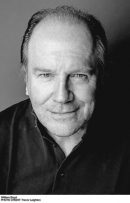 ‘Life without complications isn’t really a life’
‘Life without complications isn’t really a life’
Our choice in July was ‘Love is Blind’ by William Boyd. Like many of Boyd’s novels (e.g. ‘Any Human Heart’) it follows the protagonist’s life, in this case ten years of Brodie Mancur’s life at the beginning of the 20th century as he flees around the world from a pursuer bent on revenge. It is therefore a picaresque adventure story owing much to one of Boyd’s heroes, Robert Louis Stevenson, as well as to Chekhov – another influence on his writing.
Brodie is a short-sighted piano tuner , but no ordinary piano tuner – he has the ability to adjust, fine- tune, play with the piano to produce the best sound for any particular pianist and in addition he has a good business sense. He is therefore recruited to work for a piano-making firm of high repute, and then to travel with a famous concert pianist, John Kilbarron, an alcoholic who is past his best but still attracting audiences. Music therefore plays an important part in the novel on many different levels.
As the title suggests, this is a love story as Brodie starts an obsessive affair with Kilbarron’s beautiful mistress, Lika Blum, while Kilbarron’s sinister brother, Malachi, lurks in the shadows. The novel becomes a chase from city to city, as the lovers and Lika’s little dog,escape from one catastrophe to another, with disappointments at every location. As such it is a page turner; we want to know what happens to Brodie as he travels around Europe. Boyd strongly evokes character and place, from the hum and filth of everyday life to the life-style of the very rich of St Petersberg. It is, however, a carefully plotted book – meticulously crafted as the pianos were and framed within the beginning and ending on the Pacific islands of the Andaman. The shadow of Brodie’s consumption hangs over the novel .
On one level this can be enjoyed as an adventure story, but there are other layers for the discerning reader. Boyd is a disciple of Chekov and this is strongly reflected in the novel. Chekov also has a blonde mistress named ‘Lika’ and the title of one of his short stories is ‘The Lady with the Little Dog’. There are many allusions to Russia and Brodie meets a fellow patient, surely Chekov, in the sanatorium in Nice. The underlying themes are also reminiscent of Chekov – Brodie is at the mercy of the gods of love , time and death in a life which is a lottery – the novel has been described as a game of snakes and ladders . This results in a tension between the randomness of life and the formal nature of art, reflected in the mechanics of the piano as well as the careful plotting of the novel.
Boyd has other literary and cultural references half-hidden in the text ,such as the man in the overcoat in the park, an allusion to Proust; the conductor of Mahler’s symphony who is Mahler himself, and many others. Brodie’s benefactress is surely a ‘Miss Havisham’, and the grim Scottish home recalls Stevenson’s ‘Kidnapped’. It is as though Boyd is playing with us and adding such discoveries to the pleasure of the novel. It is also worth paying attention to seemingly trivial details such as Brodie’s cigars and the Scottish folk tune which come to have such importance in the plot.
Most members of the Book Club enjoyed the novel. They raised such questions as why Brodie’s tyrannical preacher father hates him so much and is Brodie what he seems to be? Does Lika betray her lover, or worse? One member found what she called ‘the Easter Eggs’ in the text, i.e. those half- hidden references that give delight when we find them. There are times when the plot doesn’t quite convince, and some found the characters not entirely sympathetic and lost patience with what happens to them. However most of us found it a rewarding read and worth rereading – ‘readable,engaging and frequently funny’.
Our next book is ‘Paris Echo’ by Sebastian Faulks
Heather Mines

